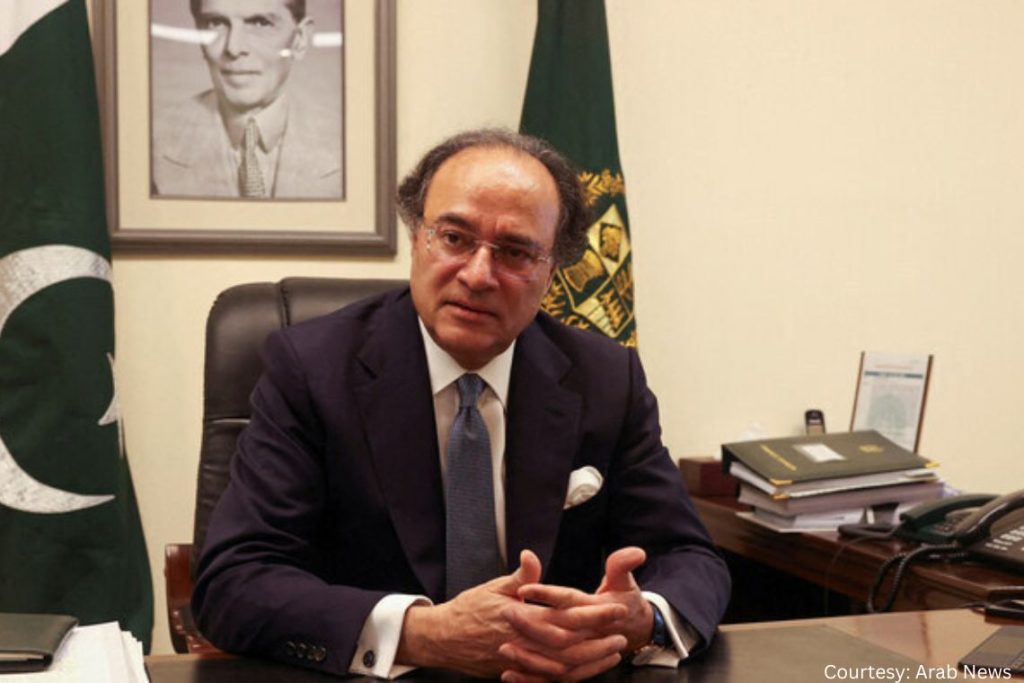ISLAMABAD
Presenting the federal budget for the fiscal year 2025–26, Finance Minister Muhammad Aurangzeb announced a decisive end to all tax amnesty schemes, declaring that Pakistan will now move forward through strict enforcement, digital monitoring, and tax base expansion.
Terming it a “reform-focused budget,” the finance minister stated that there would be no further pardons for tax evaders. Instead, the government aims to improve transparency, enhance documentation, and ensure compliance through modern tools and institutional discipline.
“The era of tax amnesty schemes is over. There will be no more free passes for tax evaders. Pakistan will progress through credible enforcement and fair taxation,” said Aurangzeb in his address to the National Assembly.
Key Budget Indicators
- Total Budget Outlay: Rs17.57 trillion
- GDP Growth Target: 4.2 percent
- Fiscal Deficit: 3.9 percent of GDP
- Primary Surplus: 2.4 percent
- Inflation Target: 7.5 percent
- FBR Revenue Target: Rs12.97 trillion
The finance minister reaffirmed Pakistan’s commitment to sustainable economic practices, noting that the new budget seeks to strengthen public finances without introducing additional burdens on the salaried class.
Focus on Tax Enforcement and Digitisation
The Federal Board of Revenue (FBR) has been tasked with implementing a results-driven tax strategy focused on enforcement rather than voluntary declarations. The plan includes:
- Expansion of the tax base, especially in retail and wholesale sectors
- Use of AI-based risk profiling and digital audits
- Automated and simplified tax returns, especially for salaried individuals
- Enhanced recovery through data-backed enforcement, building on Rs390 billion recovered last fiscal year
Aurangzeb noted that confidence in the tax system will only grow if it is consistent, technology-driven, and backed by firm action against chronic evaders.
Structural Reforms and Relief Measures
While enforcement remains a central theme, the government has also introduced targeted relief measures and long-term structural reforms. Key initiatives include:
- Revised income tax slabs offering relief to middle-income earners
- No new direct income taxes imposed on the general public
- Increased allocations for the Benazir Income Support Programme (BISP)
- Streamlined customs tariff structure reduced to four duty slabs: 0%, 5%, 10%, and 15%
- Phasing out of the Fifth Schedule, aimed at simplifying business taxation
- Introduction of climate-related levies such as carbon and petroleum development charges
Aurangzeb described these measures as steps towards “responsible fiscal management” and a move away from ad hoc policymaking.
Political and Public Reactions
The budget has drawn mixed reactions across the political spectrum. While the government has labelled it “pragmatic and growth-oriented,” opposition leaders have criticised it as “IMF-dictated” and “anti-people,” pointing to rising fuel levies and indirect taxation.
However, economic analysts note that the elimination of amnesty schemes reflects Pakistan’s growing commitment to aligning with international fiscal standards and strengthening institutional credibility.
PakTribune View
The 2025–26 budget reflects a clear policy shift. With the end of tax amnesties, the government is aiming to establish a more disciplined, enforcement-based revenue system. Success will depend on the FBR’s capacity to deliver, political will to stay the course, and the ability to rebuild public trust in the tax apparatus.
This is a test not just of policy — but of implementation, governance, and institutional reform.
Stay with PakTribune for continuous updates, sector-wise analysis, and expert commentary on Budget 2025–26.


